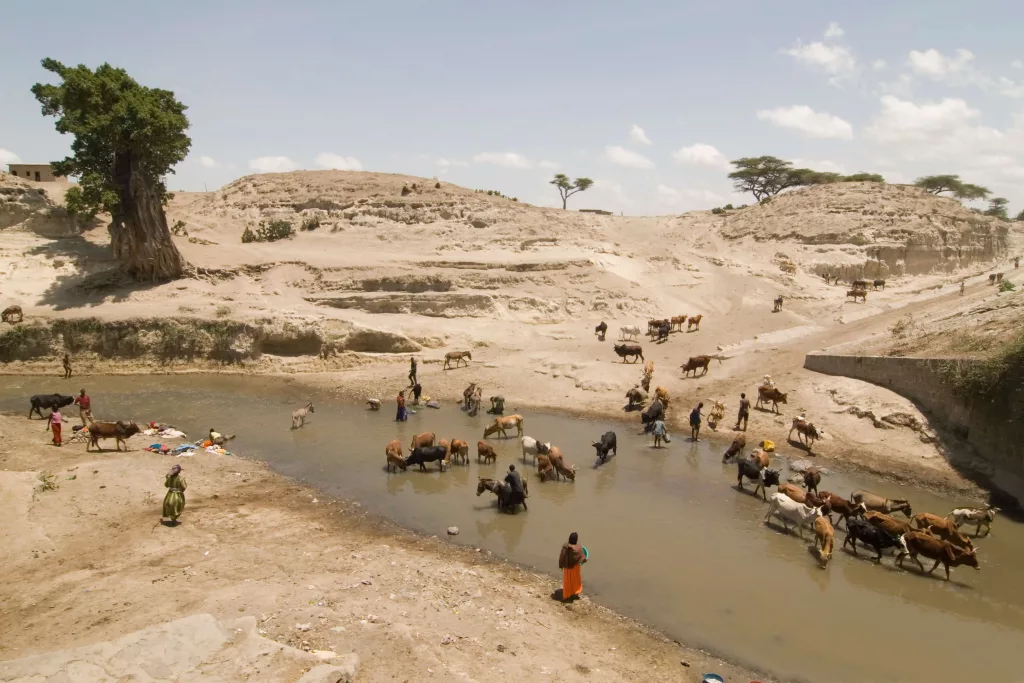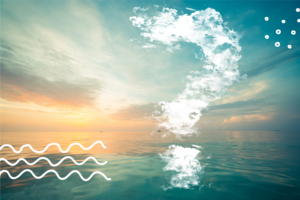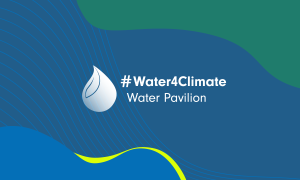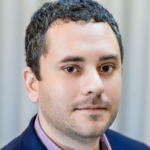- SIWI – Leading expert in water governance
- /
- Latest
- /
- Journalists in the Nile region join forces to strengthen their reporting
Journalists in the Nile region join forces to strengthen their reporting
Most of us rely on media reports to understand the world around us, water topics included, but it can be challenging for journalists to provide accurate and balanced reporting on complex and contentious issues. The Eastern Nile Journalist network has helped local reporters find new ways to cover water issues. “Journalists can learn from each other and together demand greater transparency,” says Amira Sayed from Egypt who is one of the network’s active members.

Since 2016, the International Centre for Water Cooperation (ICWC), hosted by SIWI under the auspices of UNESCO, and SIWI’s Shared Waters Partnership programme organize workshops for journalists in the Eastern Nile River Basin. The workshops help reporters gain new knowledge and expand their networks. Participants have also formed the Eastern Nile Journalist network as a resource group of dedicated journalists reporting on similar stories from across borders.
Most of us rely on media reports to understand the world around us, water topics included, but it can be challenging for journalists to provide accurate and balanced reporting on complex and contentious issues. Since 2016, the International Centre for Water Cooperation (ICWC), hosted by SIWI under the auspices of UNESCO, and SIWI’s Shared Waters Partnership programme organize workshops for journalists in the Eastern Nile River Basin. The workshops help reporters gain new knowledge and expand their networks. Participants have also formed the Eastern Nile Journalist network as a resource group of dedicated journalists reporting on similar stories from across borders.
Amira Sayed, reporter at the Egyptian Gazette and Al Monitor in Cairo, participated in a workshop organized by SIWI in December 2019 and feels it made her a better reporter.
“It was good to meet other journalists from neighbouring countries and get a chance to listen to international water experts. For me it came at a very important time, when I was starting to report about the Grand Ethiopian Renaissance Dam, which is a very sensitive topic,” she says.
The Grand Ethiopian Renaissance Dam, GERD, will be the largest hydropower project in Africa but has been controversial since it was announced ten years ago. In Amira Sayed’s native Egypt, the dam is considered a threat to water availability. In Ethiopia, on the other hand, the dam is not only a source of great pride but also seen as an important source of much-needed electricity.
“Participating in the journalist workshop allowed me to get to know journalists from other countries and this helped me see the other side to this story,” Amira Sayed explains.
At the journalist workshop she met Abiy Hailu, Deputy Editor-in-Chief at The Ethiopian Herald English daily in Addis Ababa. He, too, appreciated the chance to meet both fellow journalists and international water experts:
“I managed to get different perspectives from the scholars who presented papers and journalists from the Nile basin about GERD and the Nile basin. What I learnt is that even if the Nile issue is complicated, if one is willing to sit and talk, it would be possible to come up with solutions. I think the platform has created an opportunity to listen to different sides of the story and get perspectives,” Abiy Hailu says.
His primary focus is on politics and economics, though he occasionally also reports on environmental and cultural issues. “There has not been much focus on environmental issues. But, starting recently, things are improving. For instance, we now have a column called Planet Earth. But still, compared to politics and economy, environmental issues are at the bottom of the pile,” Abiy Hailu explains.
Reporting on the GERD of course involves many different perspectives, including politics, economics and environmental. For journalists in the region, it can be a struggle to maintain editorial independence when covering topics that can be considered political, especially when emotions are running high also among the public.
“Getting the right source and balancing are challenges. In addition, it is also a very sensitive issue which is influenced by nationalistic sentiments in all countries,” Abiy Hailu says.

In Egypt, political issues are usually the hardest to cover and the GERD is especially challenging since it is perceived as a matter of national security. Amira Sayed’s focus is on environmental issues and climate change, where she says it is easier to find sources and write independently. “Unlike in many other countries, in Egypt climate change is not yet a political issue but still treated as a development and social issue, which means that you can get all the information you need. But when I started, people didn’t care much about climate change, it was seen as an elite issue that didn’t really impact people in general. Now that is changing, with more and more people feeling the impact of climate change in their daily lives,” Amira Sayed says.
Water used to be one of those development-related issues that created neither much interest nor journalistic headaches, but those days are gone, according to Amira Sayed. Both climate change and the construction of the GERD have brought the question of water availability to the fore, and when South Africa’s Cape Town faced the risk of running out of water a couple of years back, it was a top story in Egypt for weeks.
“Many people in Egypt worry that they will wake up one day and find that there is no water in the tap or that there will not be water for farmers. Some media outlets exaggerate those risks, while others play them down. But I want to get the real story out, with its complexities,” Amira Sayed says.
The workshop in December 2019 gave her new tools to do this, including a more profound understanding of the science around climate change, water availability and transboundary water cooperation. Professor Ashok Swain from Uppsala University is a leading expert on how countries can strengthen their security through collaboration over shared water resources and meeting him made Amira Sayed view cooperation in the Nile region through a new lens. He was interviewed for her first article after the workshop.
“Interviewing Professor Swain made me see possibilities I was not aware of and it made me more optimistic. It also influenced my editor and we decided to start interviewing more foreign experts, to provide different perspectives to our readers,” Amira Sayed recalls.
Dr Kevin Wheeler, from the Environmental Change Institute at Oxford University, was another of the experts who lectured during the journalism workshop. He helped the participants understand the construction of the Grand Ethiopian Renaissance Dam and its actual impact on the environment and water availability to make it easier for them to assess different statements about the controversial project.
Returning to their newsrooms after the workshop, Abiy Hailu, Amira Sayed and the others were more determined than ever to get the facts right and debunk flourishing myths. They stay in touch with each other through a digital chat group where they compare different versions of current events and discover misconceptions.
“We can help each other find spokespersons and experts, and it is good to hear other points of view. Sometimes this causes a bit of tension between us, but we remain friends and we have a shared interest in promoting transparency and accurate reporting,” Amira Sayed says.
The journalists in the Eastern Nile Network recently published a report with water-related stories from the region – read it here.
In May 2020, the Eastern Nile Network issued a statement calling on their governments to collaborate and be transparent – read it here.
Most recent

SIWI’s endorsement of the COP29 Declaration on Water for Climate Action
- Water and climate
- World Water Week
- Water governance

SIWI-WASH experts join IVL
- Water, Sanitation and Hygiene (WASH)
- Water governance

Women hold the key to building climate resilience
- Gender and water
- Resilience through water

Join us on a journey through 2023

The world can’t afford a water dry Summit of the Future

Water for Peace Quiz: How deep is your knowledge?


